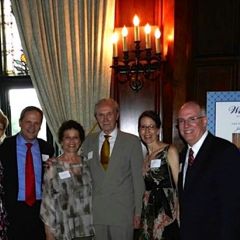CLE: Fracking in Illinois: Facts and Myths Explained
Join us in Springfield on September 17th as we separate fact from fiction on the issue of fracking in Illinois with this informative full-day seminar! Hydraulic fracturing, commonly referred to as fracking, is a hot topic issue in Illinois – especially with the Hydraulic Fracturing Regulatory Act now in place in Illinois. In order to better represent clients dealing with fracking issues, Illinois attorneys need to learn how and where fracking works, the new state law, and the status of federal and state regulations. Attorneys who attend this full-day seminar will learn: the geology of the Illinois Basin and the New Albany Shale in southern Illinois; how horizontal drilling and fracking technology has enabled increased development of Illinois’ energy resources; the requirements of Illinois’ Hydraulic Fracturing Regulatory Act; the roles of the Illinois Department of Natural Resources, the Illinois Environmental Protection Agency, and the U.S. Environmental Protection Agency; the environmental issues associated with fracking, including resource water management, groundwater, disposal, and air emissions; local interests, including real estate and agricultural law issues; risk management and insurance coverage; and much more!
The seminar – which qualifies for 7.0 hours MCLE credit – is presented by the ISBA Environmental Law Section, and co-sponsored by the ISBA Agricultural Law Section, ISBA Real Estate Law Section, and ISBA General Practice, Solo and Small Firm Section.

 Now get the ISBA's must-have Family Law Handbook and our Illinois Domestic Relations Statutes together at 20% off the list price! The Family Law Handbook, comprehensively updated in 2011, covers nearly everything general practitioners and others who handle family law matters need to know. And the Domestic Relations Statutes book (2013 edition, current through December 2012) is an easy-to-carry compendium of key family law statutes that no domestic relations lawyer should be without.
Now get the ISBA's must-have Family Law Handbook and our Illinois Domestic Relations Statutes together at 20% off the list price! The Family Law Handbook, comprehensively updated in 2011, covers nearly everything general practitioners and others who handle family law matters need to know. And the Domestic Relations Statutes book (2013 edition, current through December 2012) is an easy-to-carry compendium of key family law statutes that no domestic relations lawyer should be without.
 The 2013 ISBA Solo & Small Firm Conference will be held on Oct. 3-5 at the Westin Northwest Chicago in Itasca. Earn up to 16.5 hours of MCLE credit, including all 6 hours of required PMCLE credit.
The 2013 ISBA Solo & Small Firm Conference will be held on Oct. 3-5 at the Westin Northwest Chicago in Itasca. Earn up to 16.5 hours of MCLE credit, including all 6 hours of required PMCLE credit.